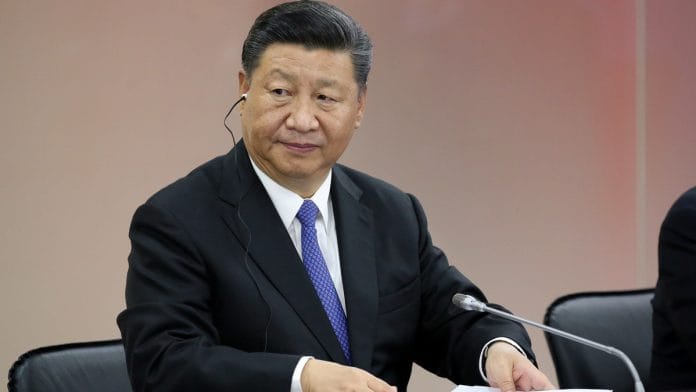New Delhi: India has “cautioned” Myanmar on China’s growing influence in the country, official sources told ThePrint.
The warning came as Chinese President Xi Jinping concluded his maiden visit to Myanmar where he announced investments to the tune of billions.
“We are watching these developments closely and assessing them. We have told the leadership (of Myanmar) to look around and understand the Chinese model and take a cautious approach,” a top official said.
During Xi’s visit from 17-18 January, China and Myanmar signed as many as 33 agreements, including multi-billion-dollar deals in infrastructure, along with memorandums of understanding.
Both sides also agreed to “step up” work on the China-Myanmar Economic Corridor (CMEC), which is part of Beijing’s mega Belt and Road Initiative (BRI), an ambitious initiative meant to build a trade corridor linking Asia, Africa and Europe.
As part of the CMEC, China is developing the Kyauk Phyu Special Economic Zone and Myanmar-China Border Economic Cooperation Zones. It is also helping with new urban development of Yangon, Myanmar’s largest city, besides infrastructure projects such as roads, railways, electric power and energy.
Meanwhile, ties between India and Myanmar have been somewhat lukewarm, with New Delhi placing no major focus on its eastern neighbour despite the importance it warrants under Prime Minister Narendra Modi’s ‘Neighbourhood First’ policy.
‘India should take Chinese influence seriously’
Xi, who was in Nay Pyi Taw from 17-18 January, selected Myanmar as his first overseas destination in 2020 with the objective of “deepening their comprehensive strategic cooperative partnership, building Myanmar-China community with a shared future and ushering in a new era of Myanmar-China relations”, according to a joint statement issued at the end of his visit.
“The growing Chinese influence in Myanmar has to be taken very seriously by the government. It is imperative India works out a comprehensive policy focused towards Myanmar,” said Rajiv Bhatia, India’s former ambassador to Myanmar.
A distinguished fellow at Mumbai-based thinktank Gateway House, Bhatia is the author of a book on Yangon-Delhi ties called India-Myanmar Relations: Changing Contours.
“India does have several options and it has to have a proper debate on it internally. The stage has come for India, where it has to now buckle up and not let the grip get tighter,” he added.
Also read: No role for third party on Kashmir issue: MEA on Trump’s latest offer to help
Among other things, Myanmar is key to India in terms of New Delhi’s access to the larger ASEAN (Association of Southeast Asian Nations) market.
Myanmar remains central in India’s plans to develop a trilateral highway connecting New Delhi with Bangkok, the Kaladan Multimodal Transit Transport Project connecting eastern India with Myanmar, and the east-west corridor connecting the northeast region with southeast Asia.
According to a second official, work in these projects is progressing at a snail’s pace while Chinese-led projects are progressing fast.
“The tendency among India’s neighbours to accommodate China’s BRI projects owing to domestic political compulsions continues unabated, despite concerns about unsustainable debt burdens and loss of sovereignty,” said a report authored by Sanjay Pulipaka and Mohit Musaddi of the thinktank Delhi Policy Group this week.
The Rohingya issue
New Delhi has also expressed concerns, sources said, on China’s attempts at being a mediator between Bangladesh and Myanmar over the issue of Rohingya refugees.
Thousands of Rohingya, a primarily-Muslim community based in Myanmar’s Rakhine province, were forced to flee the country amid alleged state-sponsored persecution by the country’s Buddhist majority.
As part of an agreement between India and Myanmar, New Delhi has built as many as 250 prefabricated houses for the Rohingya under the Rakhine State Development Programme (RSDP).
Earlier this week, India’s Ambassador to Myanmar Saurabh Kumar handed over relief assistance for the civilians of Rakhine displaced as a consequence of the ongoing conflict.
Also read: Why ICJ order asking Myanmar to stop Rohingya ‘genocide’ is binding but not enforceable







There is no reason for Myanmar to listen to India. With it’s constantly whining attitude, India brings nothing to the table for it’s neighbors. The latest example being India’s withdrawal from RCEP. Instead of greater integration with it’s neighbors and opening up it’s markets, India has adopted a lose lose posture. Myanmar should ignore India and seek it’s prosperity with China.
It would have been so much better if India had been inside the RCEP tent, instead of giving valuable advice from the outside.